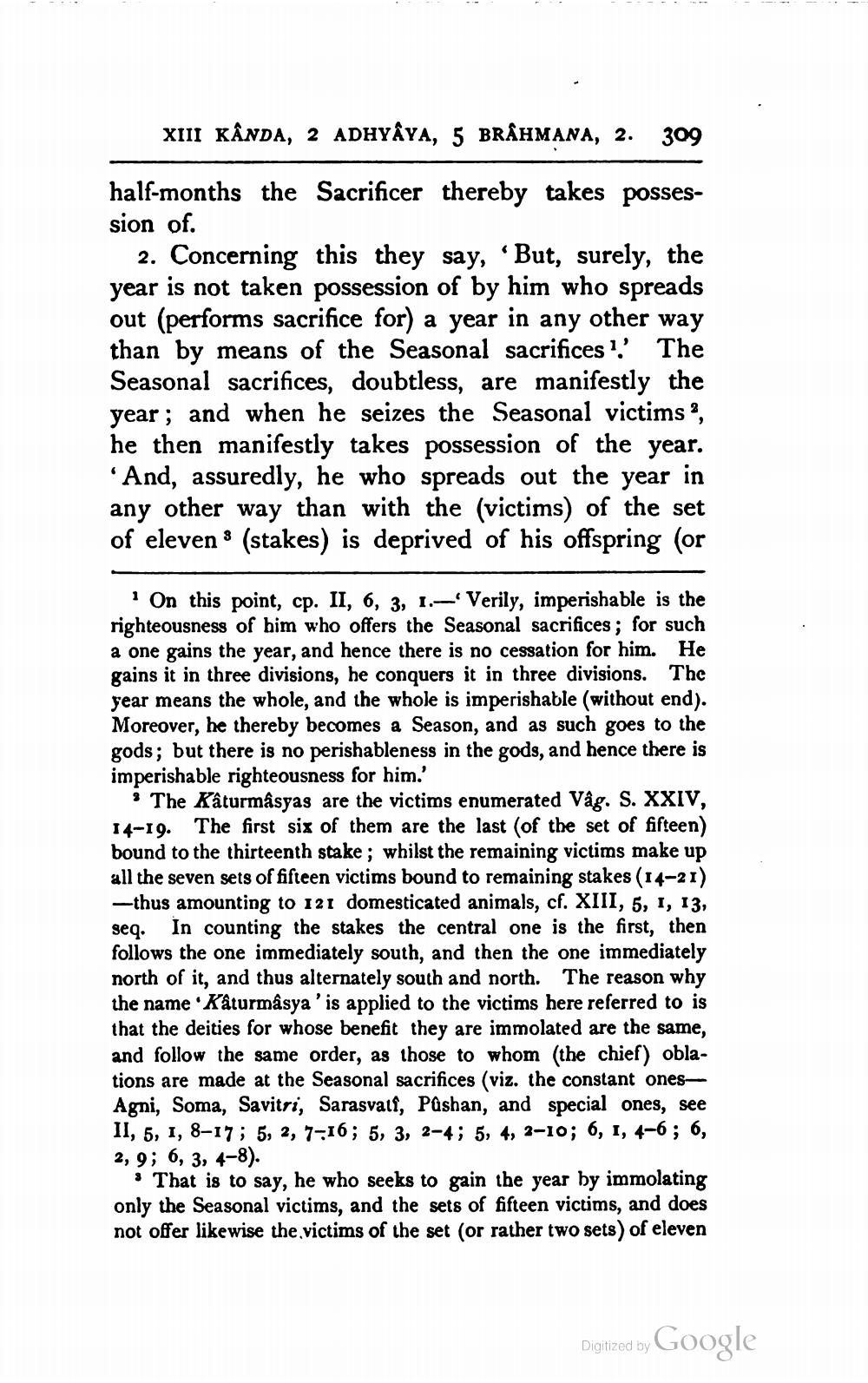________________
XIII KANDA, 2 ADHYAYA, 5 BRAHMANA, 2. 309 half-months the Sacrificer thereby takes possession of.
2. Concerning this they say, 'But, surely, the year is not taken possession of by him who spreads out (performs sacrifice for) a year in any other way than by means of the Seasonal sacrifices'.' The Seasonal sacrifices, doubtless, are manifestly the year; and when he seizes the Seasonal victims 2, he then manifestly takes possession of the year. 'And, assuredly, he who spreads out the year in any other way than with the (victims) of the set of eleven (stakes) is deprived of his offspring (or
3
On this point, cp. II, 6, 3, 1.- Verily, imperishable is the righteousness of him who offers the Seasonal sacrifices; for such a one gains the year, and hence there is no cessation for him. He gains it in three divisions, he conquers it in three divisions. The year means the whole, and the whole is imperishable (without end). Moreover, he thereby becomes a Season, and as such goes to the gods; but there is no perishableness in the gods, and hence there is imperishable righteousness for him.'
The Kâturmâsyas are the victims enumerated Våg. S. XXIV, 14-19. The first six of them are the last (of the set of fifteen) bound to the thirteenth stake; whilst the remaining victims make up all the seven sets of fifteen victims bound to remaining stakes (14-21) -thus amounting to 121 domesticated animals, cf. XIII, 5, 1, 13, seq. In counting the stakes the central one is the first, then follows the one immediately south, and then the one immediately north of it, and thus alternately south and north. The reason why the name 'Kâturmâsya ' is applied to the victims here referred to is that the deities for whose benefit they are immolated are the same, and follow the same order, as those to whom (the chief) oblations are made at the Seasonal sacrifices (viz. the constant onesAgni, Soma, Savitri, Sarasvati, Pushan, and special ones, see II, 5, 1, 8-17; 5, 2, 7-16; 5, 3, 2-4; 5, 4, 2-10; 6, 1, 4-6; 6, 2, 9; 6, 3, 4-8).
That is to say, he who seeks to gain the year by immolating only the Seasonal victims, and the sets of fifteen victims, and does not offer likewise the victims of the set (or rather two sets) of eleven
Digitized by
Google




